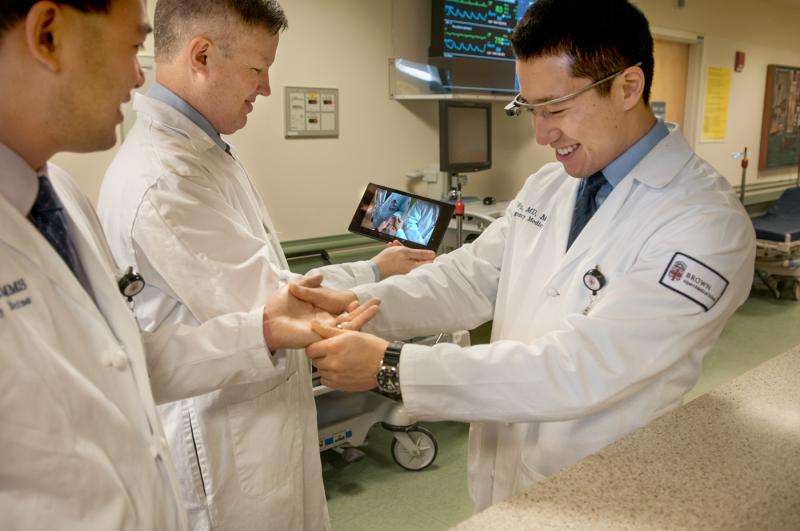Rhode Island Hospital uses Google Glass to diagnose skin conditions

One enterprising team of physicians at Rhode Island Hospital experimented with Google Glass to gauge the effectiveness, security and patient acceptance of a real-time, video dermatological consultation. The research results were published today in JAMA Dermatology.
Skin problems account for 3.3 percent of emergency department visits, and most patients wait months to see a dermatologist. For the patients who qualified for the trial, the emergency department physicians at Rhode Island Hospital used Google Glass—a pair of eyeglasses with a computer, camera and microphone built into the frame - to contact a dermatologist through a video link using Glass and running a third-party, Health Insurance Portability and Accountability Act (HIPAA)-compliant video platform. Later, patients were surveyed about their experience with teledermatology.
"While the patients prefer in-person visits, they said they preferred the video consultation over a more widely practiced telephone consult," said Paul S. Porter, M.D., the principal investigator and a physician in the emergency department of Rhode Island, Hasbro Children's and The Miriam hospitals. "For patients, a fast and accurate diagnosis means a faster path to satisfactory treatment. A device like this democratizes telemedicine because a hospital can start a program for a few thousand dollars and gain access to an experience that was only previously available at a much higher price point."
Because of the interactive nature of the device, the teledermatologists were able to appreciate both the gestalt of nonspecific skin eruptions and specific dermatoses, or skin diseases. Additionally, the off-site doctors were able to interact with the on-site doctors by asking questions and requesting additional skin locations to examine. During the process of informed consent, medical staff explained to patients that no information was stored, and the live transmission was encrypted. The participants overwhelmingly believed that their privacy was protected.
Rhode Island Hospital was the first hospital in the U.S. to test Google Glass in an emergency department setting. The study began in March, 2014 and concluded after six months.
The study had several limitations: Because of the small size and single-site status, results cannot be generalized to other institutions; the accuracy of the diagnosis in the cases wasn't measured; and the financial and workflow effects of the device weren't addressed.
















